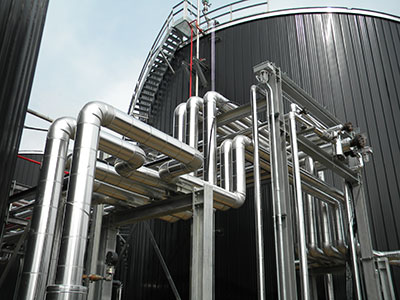Pipes in industrial plants face energy loss, corrosion, and safety risks if insulation fails. Reliable protection is crucial for long-term system performance and lower costs.
Cellular glass pipe insulation is a rigid, lightweight material made from glass powder. It is non-flammable, non-absorbent, and delivers stable insulation for pipes in demanding environments, from cryogenics to chemical plants.

Choosing the wrong insulation leads to expensive problems, including faster corrosion, heat loss, and safety hazards. From my experience, cellular glass pipe insulation stands out for its resistance to fire, moisture, and chemical attack. It is easy to install, fits tightly around straight pipes, and delivers long-term protection, saving time and money in the field. This is why I recommend it for critical pipework.
What is the purpose of cellular glass insulation?
Pipe insulation must block heat transfer, prevent water damage, and resist harsh conditions. Without the right material, performance drops and maintenance costs rise.
The main purpose of cellular glass insulation is to keep pipes at the right temperature, stop moisture from getting in, and shield systems from fire, chemicals, and corrosion.

When I insulate pipes carrying LNG or steam, cellular glass consistently outperforms other materials. Its closed-cell structure blocks both water and vapor, preventing corrosion under insulation—a leading cause of pipe failure. It performs just as well with cryogenic liquids as it does with hot asphalt tanks. The rigid form won’t compress under mechanical stress, ensuring long-term, stable performance. Adding it to direct-buried or outdoor pipes means less maintenance, fewer outages, and compliance with tough safety codes. Using cellular glass has helped extend the lifetime of equipment and cut operating costs.
What is the difference between PIR and cellular glass?
Not all insulation materials handle industrial environments the same way. Polyisocyanurate (PIR) foam and cellular glass are often compared, but their properties are very different.
Cellular glass will not burn or absorb water, but PIR can catch fire and soak up moisture over time, making it less suitable for harsh or hazardous environments.
PIR is popular because it is lightweight and insulates well, but I have seen it fail in places with fire risks or chemical exposure. If PIR’s outer skin gets damaged, moisture can get in, ruining its insulating performance. Cellular glass is made from glass, so it does not feed flames or break down when exposed to chemicals or weather. I have worked on projects where PIR had to be replaced years earlier than expected, while cellular glass lasted for decades. When long-term value, safety, and durability are your top concerns, cellular glass is the better choice.
Are foam glass and cellular glass the same?
Insulation products can use different names for the same material, confusing many buyers. I often get asked this in the field.
Foam glass and cellular glass both refer to the same insulation material: a solid made from glass powder packed with tiny, closed cells that trap air for effective insulation.
When people ask me about foam glass, I hand them a sample of cellular glass. Some catalogs list the same product under both names. The material’s all-glass makeup means it resists fire, water, pests, and rot. It is lightweight and tough yet easy to cut with a saw on-site. The confusion usually comes from regional terms or brand names, not from true technical differences. Whether the label says “foam glass” or “cellular glass,” the performance and application are identical.
Which type of pipe insulation is best?
Industrial and commercial pipework needs the right insulation for the job. Factors like temperature, moisture, safety, and budget all shape the decision.
Cellular glass is often the top choice for pipes needing maximum fire safety, moisture resistance, and long-lasting performance in harsh or demanding environments.

I pick cellular glass when I want peace of mind for years to come, especially for buried pipes, cryogenic services, or chemical plants. Unlike fiber-based insulation, it does not lose thickness, sag, or soak up moisture. Unlike foams, it will not burn, and it keeps its strength after years of heating and cooling cycles. The material comes in prefabricated sections for straight pipes, making installation fast and precise with minimal waste. If safety, durability, and energy efficiency are your goals, cellular glass is hard to beat.
Conclusion
Cellular glass pipe insulation is the best choice for reliable, safe, and long-lasting performance in tough, high-stakes industrial pipe systems.

